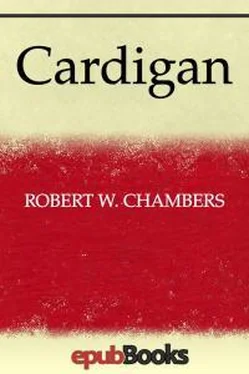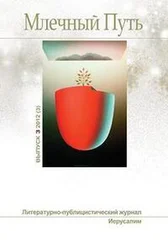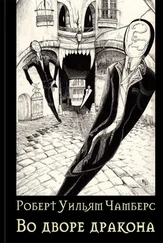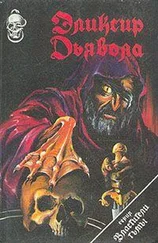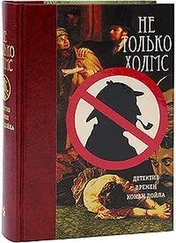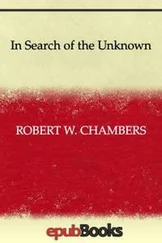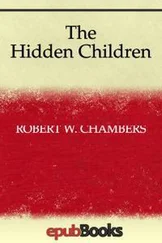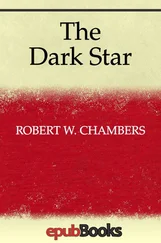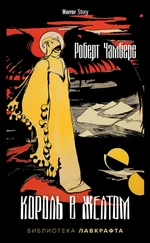Роберт Чамберс - Cardigan
Здесь есть возможность читать онлайн «Роберт Чамберс - Cardigan» весь текст электронной книги совершенно бесплатно (целиком полную версию без сокращений). В некоторых случаях можно слушать аудио, скачать через торрент в формате fb2 и присутствует краткое содержание. Год выпуска: 2014, Издательство: epubBooks Classics, Жанр: Историческая проза, на английском языке. Описание произведения, (предисловие) а так же отзывы посетителей доступны на портале библиотеки ЛибКат.
- Название:Cardigan
- Автор:
- Издательство:epubBooks Classics
- Жанр:
- Год:2014
- ISBN:нет данных
- Рейтинг книги:3 / 5. Голосов: 1
-
Избранное:Добавить в избранное
- Отзывы:
-
Ваша оценка:
- 60
- 1
- 2
- 3
- 4
- 5
Cardigan: краткое содержание, описание и аннотация
Предлагаем к чтению аннотацию, описание, краткое содержание или предисловие (зависит от того, что написал сам автор книги «Cardigan»). Если вы не нашли необходимую информацию о книге — напишите в комментариях, мы постараемся отыскать её.
Cardigan — читать онлайн бесплатно полную книгу (весь текст) целиком
Ниже представлен текст книги, разбитый по страницам. Система сохранения места последней прочитанной страницы, позволяет с удобством читать онлайн бесплатно книгу «Cardigan», без необходимости каждый раз заново искать на чём Вы остановились. Поставьте закладку, и сможете в любой момент перейти на страницу, на которой закончили чтение.
Интервал:
Закладка:
"If you were older," he said, "and if you loved each other, I should, perhaps, be weak enough not to interfere, though wisdom prompted. But it is best that Felicity should wed Mr. Butler, and that as soon as may be, for I am growing old very fast, older than I care to confess, older than I dare believe. This I say to you, for I have come to trust you and to lean on you, Michael; but you must never hint to others that I complain of age or feebleness. Do you understand?"
"Yes, sir," I answered, soberly.
"Besides," said Sir William, with a forced smile, "I have much to do yet; I mean to accomplish a deal of labour before I—well, before many weeks. Come, lad; we must not grope out here seeking unhappiness under these pretty stars. We are much to each other; we shall be much more—eh? Come, then; Quider will live, spite of those same slings and arrows of which you know not the totem marks."
As we descended the hill through shadowy drifts of spice–fern, Sir William looked long and hopefully at the candle burning in Quider's hut.
"Ho–no–we–eh–to," he murmured; "I have given him white belts—ho–way–ha–tah–koo!—they shall disinter him, though he lie dead. He came, bearing wampum; shall his spirit go out bearing a quiver—o–tat–sheh–te?—hoo–sah–ha–ho?"
"So–yone–wes; sa–tea–na–wat; he has a long wampum belt; he holds it fast, sir," I said, cheerfully mixing the tongues of the Six Nations to piece out my symbol.
So we went home, comforted and hopeful; but the morrow brought gravest tidings from Quider's lodge, for the Cayuga had fallen a–raving in his fever, and it was necessary to tie him down lest he break away.
Weighed down with anxiety concerning what Colonel Cresap might be doing on the Ohio, dreading an outbreak which must surely come if the Cayuga belts remained unanswered, Sir William, in his sore perplexity, turned once more to me and opened his brave heart.
"I know not what intrigues may be afoot, what double intrigues revolve within, what triple motives urge the men who have despatched Colonel Cresap on this adventure. But I know this, that should Cresap's colonials in their blindness attack my Cayugas, a thousand hatchets will sparkle in these hills, and the people of the Long House will never sit idle when these colonies and England draw the sword!"
Again that cold, despairing amazement crept into my heart, for I could no longer misunderstand Sir William that his sympathies were not with our King, but with the provinces.
He appeared to divine my troubled thoughts; I knew it by the painful smile which passed like a pale light from his eyes, fading in the shadowy hollows which care and grief had dug in his good, kind face.
"Learn from others, not from me, what acid chemistry is changing the heart of this broad land to stone," he said.
"I cannot understand, sir," I broke out, "why we should warn Colonel Cresap. Is it loyalty for us to do so?"
Sir William turned his sunken eyes on me.
"It is loyalty to God," he said.
The solemn peace in his eyes awed me; the ravage which care had left in his visage frightened me.
He spoke again:
"I may have to answer to Him soon, my boy. I have searched my heart; there is no dishonour in it."
We had been sitting on the bed in my little chamber. The window was open, the breeze fluttered the cotton curtains, a spicy breeze, laden with essence of the fern which covers our fields, and smells like bay–leaves crushed in one's palm.
The peace of Sabbath brooded over all, a cow–bell tinkled from the pasture, birds chirped. Sir William rose to stand by the window, and his gaze softened towards the sunlit meadows where buttercups swayed with daisies, and blue flower–de–luce quivered in the wind.
"God!" he muttered, under his breath. "That this sweet peace on earth should be assailed by men!"
Again into my breast came that strange uneasiness which this month of May had brought to us along with the robins and the new leaves, and which I began to breathe in with the summer wind itself—a vague unrest, a breathless waiting—for what?—I did not know.
And so it went on, Sir William and I walking sometimes alone together on the hill–sides, speaking soberly of that future which concerned our land and kin, I listening in silence with apprehension ever growing.
Often during that week came Mohawk sachems and chiefs of the Senecas and Onondagas to the Hall, pestering Sir William with petty disputes to judge between them. Sometimes it was complaint against drunken soldiers who annoyed them, sometimes a demand for justice, touching the old matters of the moonlight survey, in which one, Collins, did shamefully wrong the Mohawks by stealing land; and William Alexander, who is now Lord Sterling, and William Livingston did profit thereby—guiltily or innocently, I know not.
But these troubles Sir William settled impartially and with that simple justice which made fraud loathsome, even to frauds.
I do remember how he scourged and scored that villain German, Klock, for making the Mohawks drunk to rob them of their lands by cunning; and I recall how he summoned Counsellor John Chambers to witness justice between Mr. Livingston and the Mohawks:
"Billy Livingston," said Sir William, "bear this message to Billy Alexander, that the land belongs not to him or to you, but to my Mohawks! It is enough that I say this to you, for you are my old comrades and honoured friends, and I am assured you will relinquish all title to what is not your own. But, by God! Billy, if you do not, I shall spend every penny of my own on lawyers to drive you out—every farthing, though it beggars me!"
This was but one of many scenes at which I was present. Why Sir William always called me to bear him company in such private matters, I could not at once comprehend. Little by little, however, I saw that it was because of his trust in me, and his desire that I should know of such affairs; and his love and confidence made me proud. Was I not the only person in the world who knew his sentiments and his desire to stop Colonel Cresap on the Ohio, lest, in ignorance, he should turn the entire Six Nations against the colonies?
Had he not told me, sadly, that he could not speak of this plan even to his own son, Sir John Johnson, lest his son, placing loyalty to the King before obedience to his father, should thwart Sir William, and even aid Colonel Cresap to anger the Cayugas, and so injure the cause of the colonies?
He told me, too, that he could not confide in Mr. Butler or in his father, Colonel John Butler; neither dared he trust his sons–in–law, Colonel Claus or Colonel Guy Johnson, although they served as his deputies in Indian affairs.
All of these gentlemen were, first of all, loyal to our King, and all of them, clearly foreseeing a struggle between King and colonies, would not raise a finger to prevent Colonel Cresap from driving the Six Nations as allies into the King's arms.
"What I am striving for," said Sir William to me, again and again, "is to so conduct that these Indians on our frontiers shall take neither one side nor the other, but remain passive while the storm rages. To work openly for this is not possible. If it were possible to work openly, and if Quider should die, I would send such a message to my Lord Dunmore of Virginia as would make his bloodless ears burn! And they may burn yet!"
At my expression of horrified surprise Sir William hesitated, then struck his fist into the open palm of his left hand.
"Why should you not know it?" he cried. "You are the only one of all I can trust!"
He paused, eying me intently.
"Can I not trust you, dear lad?" he said, gently.
"Yes, sir," I cried, in an overwhelming rush of pity and love. "You are first in my heart, sir—and then the King."
Sir William smiled and thought awhile. Then he continued:
Читать дальшеИнтервал:
Закладка:
Похожие книги на «Cardigan»
Представляем Вашему вниманию похожие книги на «Cardigan» списком для выбора. Мы отобрали схожую по названию и смыслу литературу в надежде предоставить читателям больше вариантов отыскать новые, интересные, ещё непрочитанные произведения.
Обсуждение, отзывы о книге «Cardigan» и просто собственные мнения читателей. Оставьте ваши комментарии, напишите, что Вы думаете о произведении, его смысле или главных героях. Укажите что конкретно понравилось, а что нет, и почему Вы так считаете.
